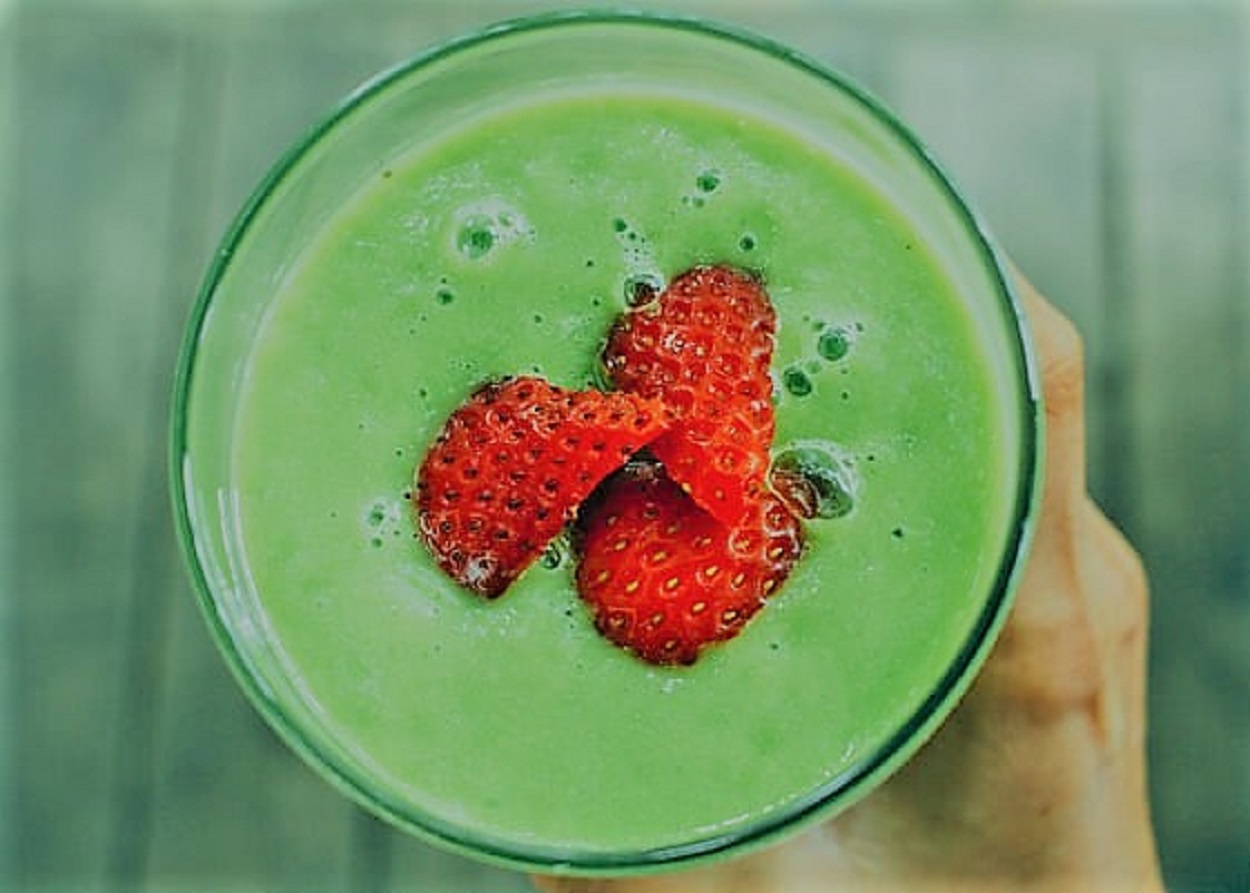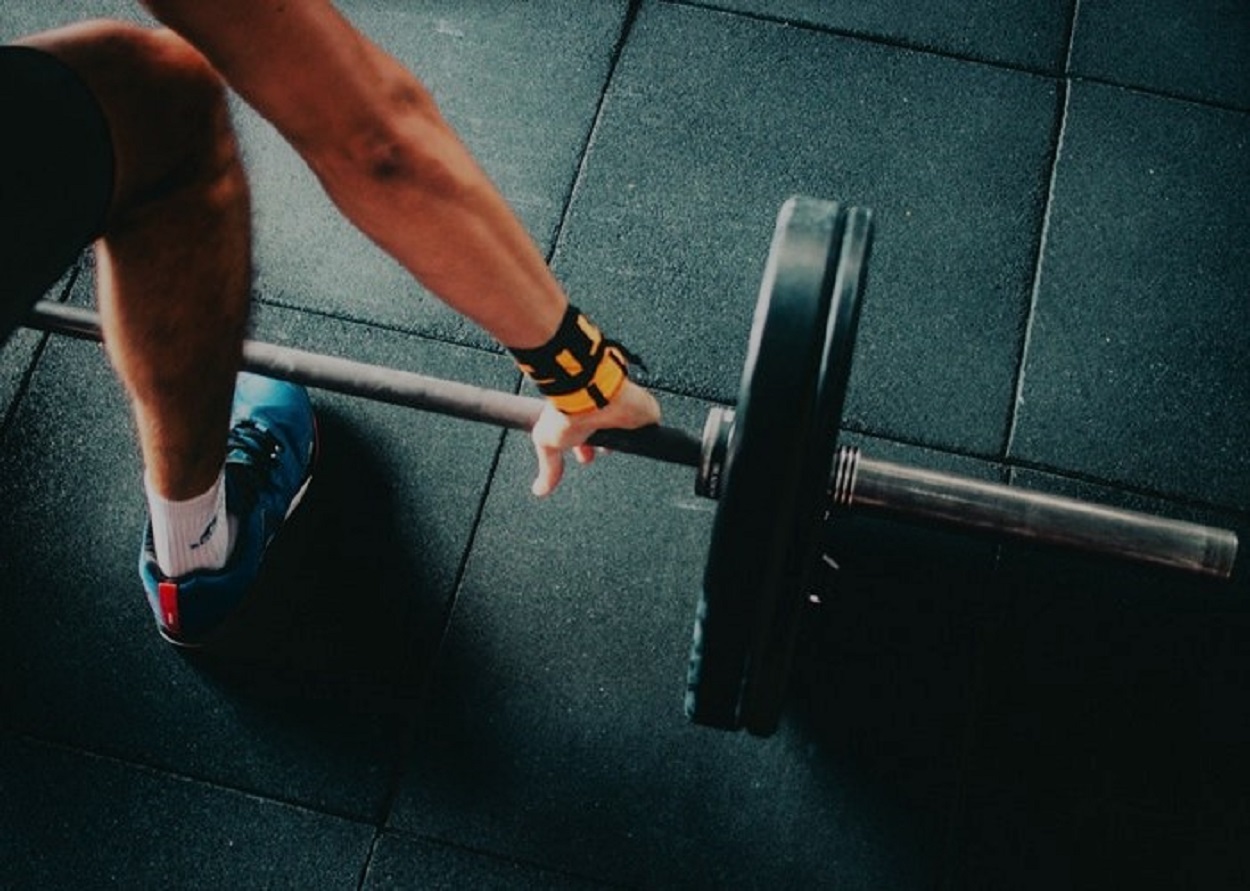Moringa Oleifera is a tropical plant. Originally from the foot of the Himalayas, it is now growing in large parts of the tropics. In many countries, because of its nutritional value, it is used to combat malnutrition.
You can eat almost everything except the bark from the Moringa plant. Above all, it is the leaves of the plant that provide incredible nutritional value. In addition to all vitamins (with the exception of B12 and D) as well as minerals, it also offers a high number of antioxidant secondary phytochemicals, the so-called antioxidants and a high protein content of approx. 28%, in which all essential amino acids are contained.
What makes Moringa so interesting for strength athletes?
But one after the other. The most important three components for successful muscle building and successful strength training are: training, nutrition, and recovery.
All of the plant’s essential nutrients are perfectly composed naturally. Moringa leaf powder as a pure natural product contains no artificial additives. The nutrient combination we find in Moringa is one of the most beneficial in natural products. Minerals and trace elements such as calcium or iron are high. The comparatively high iron content (3 times more than beef) ensures that oxygen transport, oxygen uptake, important cell functions such as mitochondrial electron transport and ultimately the entire energy metabolism work well.
It
is important that iron is taken in the presence of vitamin C, so that it can be
better absorbed by the body.
Moringa
also contains a lot of vitamin C (5 times more than oranges). In addition to
minerals and trace elements, Moringa can boast above all the protein content of
almost 30% and all essential amino acids. Valine, for example, is included as
one of the essential amino acids in Moringa and plays an important role in the
energy metabolism of muscles during exercise.
Also leucine and isoleucine, also two long-chain branched (BCAA) amino acids are contained in Moringa. They also have an important meaning for energy metabolism during the training. And finally, tyrosine, among other things, ensures that the athlete is alert and attentive during training and can concentrate on the exercise.
How can Moringa support during the rest periods?
During
the rest periods between the training sessions, the muscles are built up. It is
important that the body has all the necessary nutrients available in sufficient
quantities. Every strength athlete knows that proteins are extremely important
now. In addition to all essential amino acids, Moringa also contains another,
namely a total of 19 different amino acids.
For example, arginine is included in Moringa. Arginine plays an important role in cell growth but also in the regeneration of muscles. Tryptophan becomes serotonin and melatonin in the body, the latter in turn plays an important role in restful sleep. Most weight training athletes know about the importance of glutamine already long ago.
How does Moringa help in nutrition?
In addition to the minerals, trace elements and amino acids described above, which can be especially important during and after strength training, the powder provides all the important vitamins (with the exception of D and B12) and many phytochemicals. These are contained for example in the dyes of the plants. In humans, these phytochemicals, such as flavonoids, act as antioxidants.
Moringa,
for example, contains the valuable epigallocatechin gallate, which is also
found in green tea, which is why green tea is thought to have a
cancer-preventing effect. But antioxidants such as kaempferol or quercetin are
also included in Moringa. Both are effective compounds that can help the body
of a weight training athlete to reduce the free radicals (oxidative stress)
that have arisen in the blood due to increased exertion.
Overall, Moringa is a true powerhouse. It naturally contains few calories, up to 28% protein, 38% carbohydrates, only 2.3% fat and lots of valuable fiber (23%). It provides all the essential amino acids and a total of 19 amino acids, high levels of vitamin A, C and K, minerals such as calcium and magnesium and trace elements such as iron. In addition, 45 antioxidants can help the body to neutralize free radicals.
The
advantage of Moringa: it is 100% natural and also suitable for vegetarian or
vegan strength athletes.
How do I best use Moringa?
Quite
simply: strength athletes should best integrate Moringa in the daily nutrition
plan. Moringa can be eaten not only as a pre-workout diet (2-3 hours before)
but also as a post-workout diet, as well as for breakfast or dinner. Since
Moringa contains no caffeine, it does not affect the sleep rhythm.
It can be applied in all types of shakes, smoothies (especially green smoothies), yogurt or in sauces. It can also be sprinkled over muesli or simply stirred into juice. Importantly, Moringa should always be eaten together with something else.
How much Moringa should one eat as a strength athlete?
First, you should settle for half a teaspoon for a few days, as the plant contains many phytochemicals that some have to get used to. After a few days, you can increase the dose to several tablespoons. Where a heaping tablespoon on 300 ml of liquid, for example, in a smoothie or shake has proven good. But there are actually athletes (ultramarathon runners) who take up to 80 grams of moringa daily during competitions.
High-quality, 100% pure Premium Moringa you get HERE




